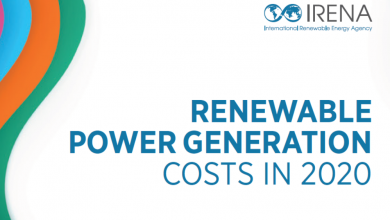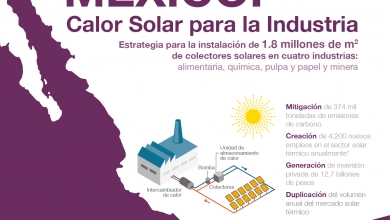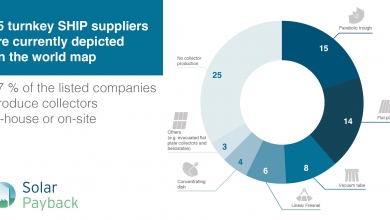Identifying main barriers to SHIP – a policy workshop
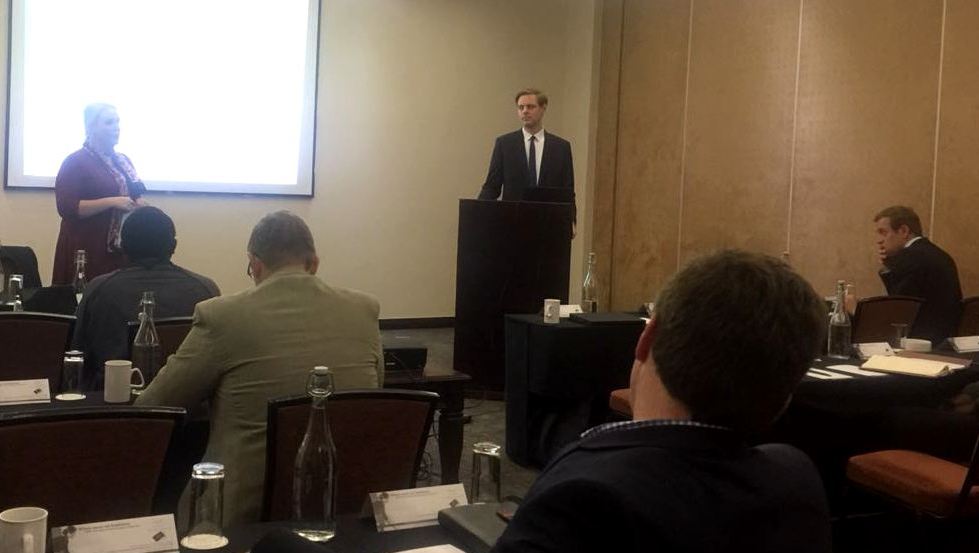
Solar Payback South African project partners, the South African National Energy Development Institute (SANEDI), hosted a policy workshop in Pretoria, Gauteng, South Africa on the 24th of July 2018. Interested parties from multiple government, private and finance sectors as well as international stakeholders gathered to discuss barriers to the implementation of Solar Heat for Industrial Processes (SHIP) technologies in South Africa and the potential of Energy Service Company (ESCO) models.
The presentation of Johannes Michel on the Solar Payback project highlighted the main objectives and activities of this multinational project across South Africa, Mexico, Brazil and India. The project aims at increasing the willingness to invest in solar thermal technologies in these four partner countries – ultimately aspiring to break the “vicious circle” of low deployment rates, high upfront investment costs, long payback periods, low awareness and little visibility of existing systems.
The SHIP Enabling Report for South Africa, presented by Peter Klein from the Council for Scientific and Industrial Research (CSIR), illustrated the potential of solar process heat in South Africa as well as macroeconomic and political framework conditions. Karen Surridge representing SANEDI outlined the most important South African and international policies and regulations focusing on the large-scale deployment of renewable energy and solar heat applications. Ensuing discussion included application of the 12L Energy Efficiency Tax Incentive that aims at accelerating economic growth and supporting the Industrial Policy Action Plan (IPAP), particularly in terms of job creation, training and implementing energy efficiency measures.
In his speech on concepts, design and potential impact of SHIP and Energy Service Company models Henning Holm of Holm and Friends stressed the maturity of solar thermal technologies and the significant returns under the right conditions. He outlined how ESCO models can assist in increasing solar heat for industrial processes deployment by identifying the main SHIP barriers.
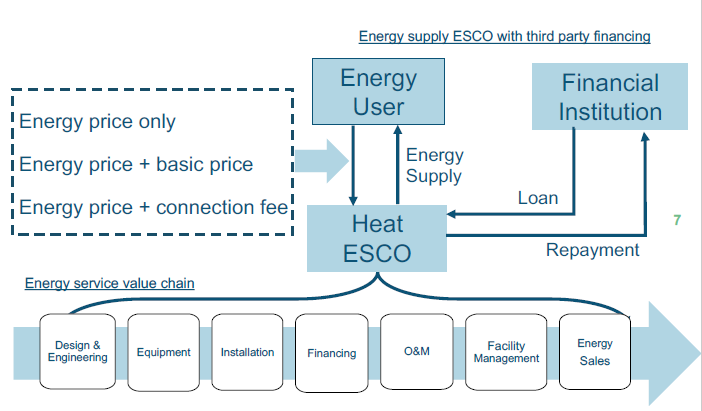
Solar Thermal ESCO Models – Graphic: Holms and Friends
Involving policy makers in the advancement of SHIP
The workshop also allowed an open discussion enabling delegates to discuss further on widespread barriers identified in SHIP projects primarily the deficiency of financing, technical maintenance requirements, availability of technology, awareness, and policies. Recommendations jointly developed in the course of the workshop have formed the base for a policy advisory document intended to be handed to decision-makers in order to involve policy makers in the development of SHIP projects. The major issues raised are not necessarily in funding but rather that the client acquisition costs are higher for SHIP projects and that financial framework conditions can be demanding. It was suggested that a pilot SHIP plant in industrial zones (cluster development) might be a way to demonstrate the viability of the technology and to create awareness. One or two areas where such a cluster could be implemented should be identified and the South African Department of Trade and Industry is willing to assist by assessing plausibility where to place such a pilot project.
